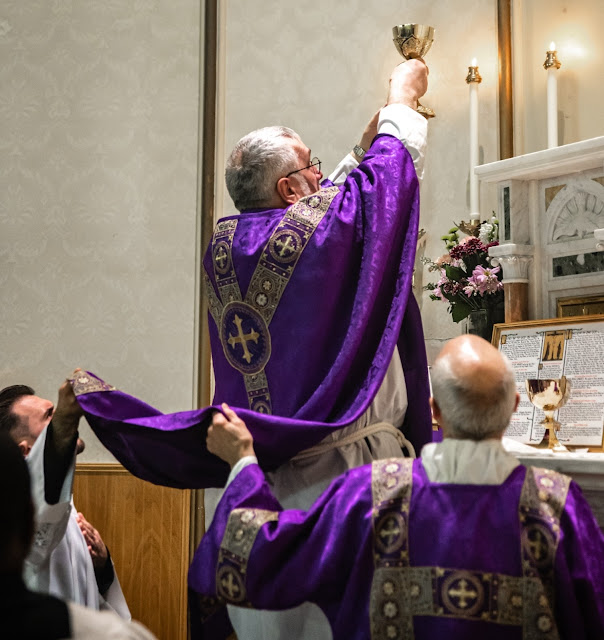Reverence

reverence (n.)
late 13c., "honor, respect, deference (shown to someone), esteem heightened by awe," also of places or holy objects, from Old French reverence "respect, awe" and directly from Latin reverentia "awe, respect," from revereri "to stand in awe of, respect, honor, fear, be afraid of; revere," from re-, here perhaps an intensive prefix (see re-), + vereri "stand in awe of, fear, respect" (from PIE root *wer- (3) "perceive, watch out for").
Daniel Carr at Crisis Magazine identifies characteristics and patterns of irreverence:
Many who do attend Mass do so with little reverence. Often the Mass is presented as theater and not a “sacrificial rite.” The musical legacy of the ’70s is uninspiring. Tee shirts, jeans, sneakers, and flip-flops are ubiquitous. Almost universal reception of Communion is the norm even though a 2011 Guttmacher report found that 87 percent of Catholics use artificial birth control, a mortal sin. Most sermons seem designed to placate rather than challenge. Is it any wonder that belief in the Eucharist has waned?
Theatre?

There's no denying that reverent liturgy can be great theatre, but not in a way that it draws attention to itself or is mere entertainment. Rather, reverent liturgy always points to God, to the One His people revere and worship. Getting caught up into God is a very different thing to getting caught up into mere emotion and pseudo-spiritual sport.

Mr. Carr identifies the following pillars to accompany the restoration of reverence:
- (The bishops) should refuse the Eucharist to persons who, after private consultation, continue to publicly support abortion.
- They should promote reverence during the Mass, including: appropriate dress, reverent Communion reception, avoiding receiving in mortal sin, silent periods of contemplation, and sacred music. [...]
- They should demand that groups opposed to Church teaching should not present themselves as “Catholic.”
Mr. Carr presents his case in an article at Crisis as a response to the United States Bishops' plan to host a Eucharistic Congress in 2024 as a capstone to a catechetical process at the parochial, diocesan and family levels. Mr. Carr takes issue with the $28 million price tag of the Bishop's project.
This blogger's opinion?
- restore ad orientem worship;
- restore communion on the tongue.
The first consideration orients the priest and people together toward God, and allows the priest to "disappear" into the liturgical action, into the Mass. The second reinforces reverence for the Real Presence and affirms the deepest intimacy of communing with God. These two gestures form the basis of a conversion of minds and hearts to truth, goodness and beauty. Properly oriented, people are more likely to be inclined to adopt other practices - bowing at the Name of Jesus, genuflecting to the Blessed Sacrament, crossing themselves at the elevations of the Precious Body and Blood of Christ, building beautiful churches - that further dispose them to God's transforming grace, the grace that enables them to grow in holiness and to zealously labour for the salvation of souls.






Comments
Post a Comment
Your comments will be appreciated and posted if 1) they are on topic and 2) preserve decorum.
Stand by your word.